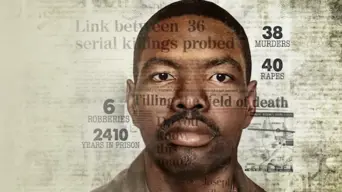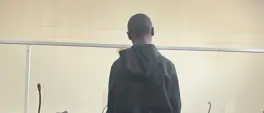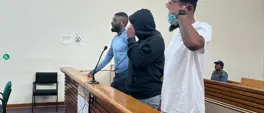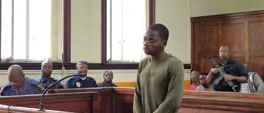New docuseries revisits Moses Sithole’s reign of terror amid South Africa’s ongoing GBV crisis
Thando Ngeno
23 July 2025 | 9:07Moses Sithole's name is perhaps one the most chilling in South Africa's history.

Moses Sithole's name is perhaps one the most chilling in South Africa's history.
JOHANNESBURG - 1994 was a year that marked a new beginning for South Africa. With the fall of Apartheid, the nation was ready to breathe again and heal after living through the atrocities.
Little did the country know that it would be plunged into another form of darkness, not an event, but rather a man who weaponised trust and poverty to prey on the most vulnerable.
Moses Sithole's name is perhaps one of the most chilling in South Africa's history.
He murdered more than 30 women, many of them young and desperate for employment. With a calm voice and quiet demeanour, he posed as a recruiter offering jobs- but this was a trap.
His crimes were not just isolated acts of brutality- but the symptoms of a broader, deeply entrenched culture of misogyny and societal inequality.
Sithole's victims were not just his victims alone; they were victimised by a system that repeatedly failed to protect them.
Now, nearly three decades later, A new three-part documentary series, detailing the life and crimes of the man dubbed the ABC killer, premiered on Showmax on 22 July- it explores various themes, but one that is perhaps the most chilling is that of gender based violence.
South Africa is a country that has been grappling with GBV for many years- according to the most recent statistics, one woman is murdered every three hours- and thousands of rape cases are reported every single year (although experts believe the actual number is far higher due to underreporting).
Director Jasyn Howes' docuseries doesn't just dwell on the past, but it asks urgent and uncomfortable questions of the present- what has South Africa done to protect women since the days of Moses Sithole?
"It's interesting to note that 30 years ago, this was a very prevalent issue in our society, and 30 years later, it still is. So what has or has not changed? Is there a conversation that could be sparked by looking at this and looking at the vulnerability of women in our society and asking ourselves what we have really done to make them less vulnerable, because GBV stats in this country remain staggeringly high?" Howes said.
The documentary-series which will be released in three bulk episodes, introduces us to what Howes has called "new heros"- he tracked down those closest to the story, including the police officers who worked tirelessly to bring Sithole to justice, as well as then-rookie journalist Tamsen de Beer- who was working the nightshift at The Star Newspaper when she received a call from Sithole.
Sithole's first victim, Buyiswa Doris Swakamisa, also makes the series. She details how he threatened to kill her if she did not have sex with him. When she reported the crime to the police, she was ostracised by those closest to her; her husband even beat her up, perpetuating the same Gender Based Violence that she had just endured from a stranger. In the years that followed, many didn't believe her and even said she may have had a role to play in this situation. This series gave her a chance to vindicate herself.
Howes said putting her in the documentary was a sober and conscious choice.
"Buyiswa was surprised I'd found her. She was surprised that no one had ever wanted to speak to her before, and this is often the case. She gives such a detailed account of what happened to her on that day bearing in mind that this happened in 1989. When I first contacted her, she was reluctant, but she saw the opportunity to share her side of the story".
Moses Sithole has cited what he termed Buyiswa's "false rape accusation" as motivation for his later crimes.
Sithole's story- while told and re-told many times- is not just about a serial killer, but highlights South Africa's war on women. And while he was eventually sentenced to life in prison, stopping serial killers like him requires institutional reform and a dismantling of a system that enables such behaviours to continue.

















